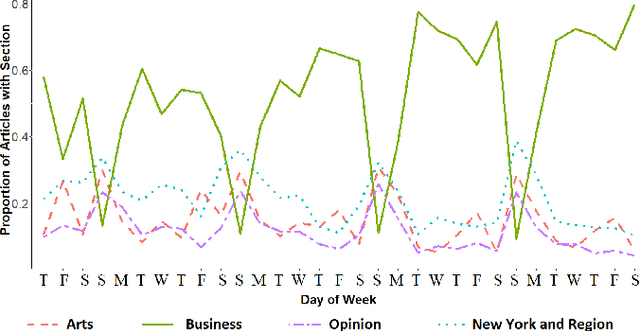Trevor Yann
Seasonal Averaged One-Dependence Estimators: A Novel Algorithm to Address Seasonal Concept Drift in High-Dimensional Stream Classification
Jun 27, 2020



Abstract:Stream classification methods classify a continuous stream of data as new labelled samples arrive. They often also have to deal with concept drift. This paper focuses on seasonal drift in stream classification, which can be found in many real-world application data sources. Traditional approaches of stream classification consider seasonal drift by including seasonal dummy/indicator variables or building separate models for each season. But these approaches have strong limitations in high-dimensional classification problems, or with complex seasonal patterns. This paper explores how to best handle seasonal drift in the specific context of news article categorization (or classification/tagging), where seasonal drift is overwhelmingly the main type of drift present in the data, and for which the data are high-dimensional. We introduce a novel classifier named Seasonal Averaged One-Dependence Estimators (SAODE), which extends the AODE classifier to handle seasonal drift by including time as a super parent. We assess our SAODE model using two large real-world text mining related datasets each comprising approximately a million records, against nine state-of-the-art stream and concept drift classification models, with and without seasonal indicators and with separate models built for each season. Across five different evaluation techniques, we show that our model consistently outperforms other methods by a large margin where the results are statistically significant.
 Add to Chrome
Add to Chrome Add to Firefox
Add to Firefox Add to Edge
Add to Edge